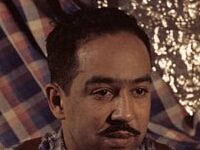 It has been widely believed that multiracial adolescents have more behavioral problems than African Americans and Whites because they are not accepted as peers by either ethnic groups. But research conducted by scholars at the University of Washington and the University of Chicago has found that the differences are not that great.
It has been widely believed that multiracial adolescents have more behavioral problems than African Americans and Whites because they are not accepted as peers by either ethnic groups. But research conducted by scholars at the University of Washington and the University of Chicago has found that the differences are not that great.
“People usually portray multiracial children as facing greater challenges growing up than single-race children,” said Yoonsun Choi, lead author and associate professor at the University of Chicago’s School of Social Service Administration. “What we’re finding is that they do have an increased risk for problems with drugs and violence, but those problems aren’t as extensive as what has been found before. Maybe there’s a trend going on, where problems are declining for multiracial youth.”
The data, from a survey of 1,800 seventh and ninth graders, found that 55 percent of multiracial youths had tried alcohol compared to 47 percent of White youths. About 11 percent of multiracial youth reported that they had participated in violent behavior. This was about double the rate for Whites. However, socioeconomic factors such as income level and the marital status of their parents were found to be mitigating factors.
The research was published in the July issue of the Journal of Youth and Adolescence.










